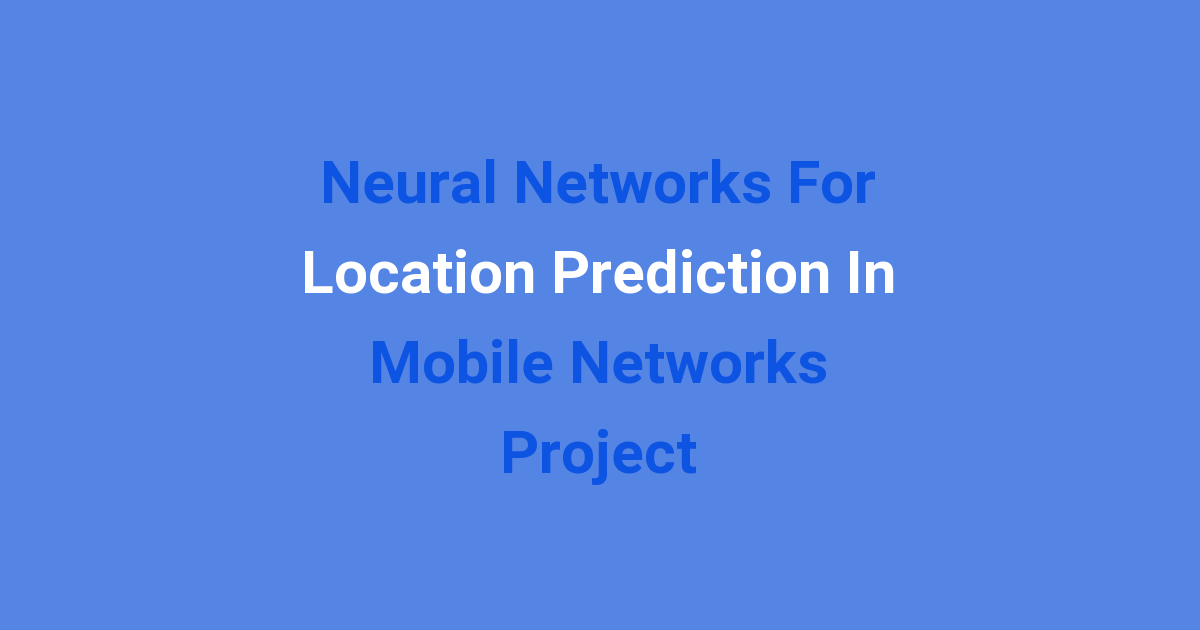Project focused on using neural networks to predict locations in mobile networks.
Introduction
Mobile networks have become an integral part of our daily lives, providing us with the ability to stay connected at all times. However, one of the challenges faced by mobile network operators is predicting the location of mobile users accurately. This is crucial for providing better services such as targeted advertising, traffic management, and emergency response.
Problem Statement
The current methods used for location prediction in mobile networks are not very accurate and efficient. Traditional approaches rely on signal strength or cell tower triangulation, which can be affected by various factors such as weather conditions, building structures, and network congestion. As a result, there is a need for a more reliable and precise solution for location prediction.
Existing System
In the existing system, location prediction is done using simple algorithms that are based on signal strength measurements. These algorithms may not take into account the complex patterns and behaviors of mobile users. As a result, the accuracy of location prediction is limited, leading to suboptimal services for users.
Disadvantages
Some of the disadvantages of the existing system include:
- Low accuracy in location prediction
- Dependence on signal strength measurements
- Inability to adapt to changing network conditions
Proposed System
Our proposed system aims to improve the accuracy and reliability of location prediction in mobile networks using neural networks. Neural networks are a type of machine learning model that can learn complex patterns and relationships in data, making them well-suited for predicting the location of mobile users.
By training the neural network on a large dataset of mobile user locations and network parameters, our system will be able to predict user locations with higher accuracy and precision. Additionally, the neural network can adapt to changing network conditions, ensuring consistent performance in different scenarios.
Advantages
Some of the advantages of our proposed system include:
- Higher accuracy in location prediction
- Ability to learn complex patterns and relationships in data
- Adaptability to changing network conditions
Features
Some of the key features of our proposed system include:
- Neural network-based location prediction model
- Data training on a large dataset of mobile user locations
- Real-time location prediction for mobile users
- Integration with existing mobile network infrastructure
Conclusion
In conclusion, our project on neural networks for location prediction in mobile networks aims to address the limitations of the existing system and provide a more accurate and reliable solution for predicting user locations. By leveraging the power of neural networks, we believe that our proposed system has the potential to significantly improve the quality of services offered by mobile network operators. We look forward to implementing and testing our system to validate its effectiveness in real-world scenarios.

